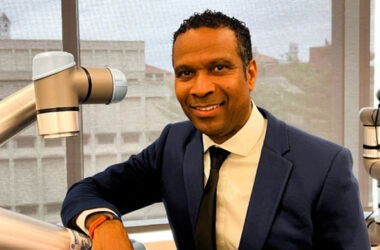
According to kidshealth.org, the way a parent disciplines their child should be according to where the child is in their development. For example:
Ages 0 to 2 – Babies and toddlers are naturally curious. So, it›s wise to eliminate temptations and no-nos — items such as TVs and video equipment, stereos, jewelry, and especially cleaning supplies and medicines should be kept well out of reach.
Ages 3 to 5 – As your child grows and begins to understand the connection between actions and consequences, make sure you start communicating the rules of your family’s home.
Ages 6 to 8 – Timeouts and consequences are also effective discipline strategies for this age group.
Ages 9 to 12 – Kids in this age group — just as with all ages — can be disciplined with natural consequences. As they mature and request more independence and responsibility, teaching them to deal with the consequences of their behavior is an effective and appropriate method of discipline.
Ages 13 and Up – By now you’ve laid the groundwork. Your child knows what’s expected and that you mean what you say about the penalties for bad behavior. Don’t let down your guard now — discipline is just as important for teens as it is for younger kids. Just as with; the 4-year-old who needs you to set a bedtime and enforce it, your teen needs boundaries, too.
Before we proceed, let’s take a moment to define discipline. Two widely accepted definitions are: the practice of training people to obey rules or a code of behavior and using punishment to correct disobedience.
“The root word of discipline is “disciple,” which comes from the Latin word discipulus meaning “student.” Referring to our opening, notice that the method of discipline changes to meet the child where they are in their ability to understand. I find it fascinating and comforting to know that our heavenly Father is not careless regarding how He disciplines us but is eternally mindful of meeting us where we are to help nurture us to where we ought to be. I think we can all relate to rejecting correction because of how hearing it made us feel despite it being good for us. This is something that we are forced to confront on a regular basis, and it has to do with our relationship with truth. We have inherited a nature that resists truth. In Hebrews chapter four verses four through twelve we are given a divine perspective of discipline.
“You have not yet struggled to the point of shedding blood in your striving against sin; and you have forgotten the divine word of encouragement which is addressed to you as children, “My child, do not make light of the discipline of the Lord, And do not lose heart and give up when you are corrected by Him; For the Lord disciplines and corrects those whom He loves, And He punishes every child whom He receives and welcomes [to His heart].” For our earthly fathers disciplined us for only a short time as seemed best to them; but He disciplines us for our good, so that we may share His holiness. 11 For the time being no discipline brings joy, but seems sad and painful; yet to those who have been trained by it, afterwards it yields the peaceful fruit of righteousness [right standing with God and a lifestyle and attitude that seeks conformity to God’s will and purpose].”
Three Ways We Receive Correction/Instruction/Discipline
1. Conviction- The Holy Spirit speaks through our conscience and oftentimes informs us a path we should take or shouldn’t take. Afterwards we sometimes say “something told me to…” or “I knew I shouldn’t have…” The Divine Spirit is constantly trying to steer us into the best path for us to take but we have to learn to listen and trust His leading.
2. People – Like in the situation with David and Nathan in 2 Samuel 12, correction may come from someone who is less articulate, educated, successful and powerful than we are but a humble heart looks beyond the status of the messenger and discovers the value within the message. People see us from an angle we sometimes fail to see ourselves so when it’s worth taking time to examine the correction being given before discarding it because of how it’s delivered.
3. Experience/Allowing us our own way – Someone said that experience gives the test before the lesson but I think that our heavenly Father prepares, as much as we are willing to be prepared, before the experience. Nevertheless, tasting the consequences and rewards of our actions is another way in which we are trained.
The writer concludes this section with the following exhortation:
“So then, strengthen hands that are weak and knees that tremble. Cut through and make smooth, straight paths for your feet [that are safe and go in the right direction], so that the leg which is lame may not be put out of joint, but rather may be healed.” Hebrews 12:4-13
I stated earlier that we have inherited a nature that resists truth. Let me close by adding that we have been gifted the Divine nature (2 Peter 1:4) that loves truth and resists falsehood. If we look at discipline and training we would seek the value within the correction we receive and avoid being distracted by our emotions and the way it is delivered. Remember, our Father disciplines us so that we can be partakers of His holiness.













